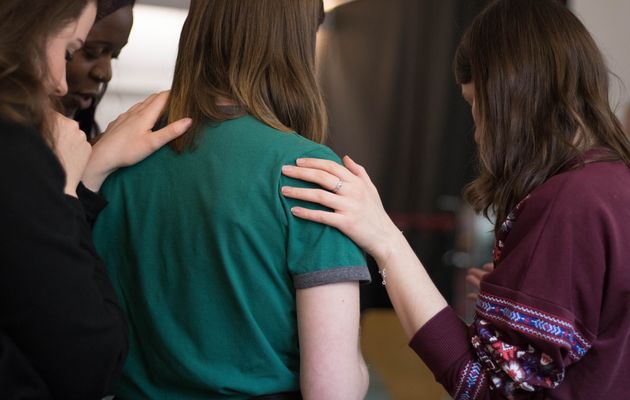History belongs to the intercessors
There is an increasing awareness in Western societies that there is more to reality than what can simply be explained using the categories of science.
14 JUNE 2018 · 12:20 CET

As a young boy growing up in India, I spent many evenings after school running around, playing sports and having fun. However once it got dark, as kids, we always stayed away from a particular mango grove.
We believed (or were led to believe) that demons lived in the mango trees and came out after dark because they only had nocturnal vision. I still wonder if this was a cleverly invented tale to prevent kids staying away from their homes after dark—and it did work.
In Indian culture belief in demons and devils is taken as a matter of fact. The distinction between material objects and dark invisible realities (such as demons) is quite blurred.
So, as a young adult when I moved to the West almost two decades ago, I found a marked difference in attitude and mind-set amongst most Westerners toward the ‘other-world’ beyond the visible and material.
There was no longer any need to believe in capricious gods playing dice with the universe, and demons were simply the projection of a dysfunctional mind.
As Richard Dawkins has explained, once upon a time we were trapped in infantile beliefs, but because of the Enlightenment through science, the modern man is liberated from myths and fairy-tales. From a backward, ignorant state of mind, we have crossed over into the real world of hard facts and objective reality. No more religious nonsense about gods and demons.
And yet, when I think about it, there is an increasing awareness in Western societies that there is more to reality than what can simply be explained using the categories of science.
There is a curious openness and a need to acknowledge the ‘spiritual world’. The day after the Manchester terrorist attack, most of the British tabloid papers had the word ‘evil’ on the front page.
Why? How do we understand things like the Holocaust, the Rwandan genocide and the Apartheid system in South Africa, and explain the reality of evil in a culture that no longer believes in gods or demons?
Here I have to turn to the Bible. But before I do I need to mention that I am not an expert on the subject and feel weary writing about it. I’ve found this subject to be quite confusing and divisive.
Some Christians want to focus exclusively on exorcising demons and have developed complex theories to explain what is happening in the heavenly realm. Other Christians have tried to demythologize spiritual powers and talk only about social structures that are unjust.
Both these views have truth and error in them. In my view dark spiritual powers are real, and they are both personal and impersonal.
Paul writes, ‘For we do not wrestle against flesh and blood, but against principalities, against powers, against the rulers of the darkness of this age, against spiritual hosts of wickedness in the heavenly places.’[1]
And in Colossians: ‘And having disarmed the powers and authorities, Jesus made a public spectacle of them, triumphing over them by the cross.’[2]
What I understand from these two verses is that there are spiritual forces of darkness at work in history that are opposed to Christ and his Kingdom. They are disarmed but not yet defeated or completely displaced from the sphere of human existence.
As Christians we are called to discern and resist these powers and principalities. We do this with confidence knowing that Jesus has already triumphed over them on the cross.
His name has the power to defeat evil. This awareness is key for engaging in social reform.
Human life would not be possible without social structures and systems, and yet these very things can become instruments of evil.
Efforts at engaging in the demanding task of transforming social structures, institutions and systems are bound to failure if we fail to take into account the spiritual realities that inhabit and posses structures and institutions.
Maybe this is what Paul meant when he wrote about the powers and principalities. As we learn to discern the spirits and spirituality that animate institutions and systems, we can better resist the forces of darkness at work in and through them by bringing the atoning and transforming power of Christ to bear on these realities.
And this is where intercessory prayer comes in.
“Intercessory prayer is spiritual defiance of what is in the way of what God has promised. Intercession visualizes an alternative future to the one apparently fated by the momentum of current forces. Prayer infuses the air of a time yet to be into the suffocating atmosphere of the present. History belongs to the intercessors who believe the future into being… Even a small number of people, firmly committed to the new inevitability on which they have fixed their imaginations, can decisively affect the shape the future takes. These shapers of the future are the intercessors, who call out of the future the longed-for new present.” [3]
Indeed, pray as often and as much as possible, and don’t be afraid to pray for extraordinary things because they might get answered!
For more on this topic, take a look at Jonathan Burnside’s Cambridge Paper (the most frequently read item on our website!): Covert Power: Unmasking the World of Witchcraft.
Philip S. Powell manages the Learning Community of the Jubilee Centre.
This article first appeared on the Jubilee Centre website and was republished with permission.
[1] Ephesians 6:12
[2] Colossians 2:15
[3] Walter Wink, The Powers That Be: Theology for a New Millennium (1999), pg 185 – 86
Published in: Evangelical Focus - Jubilee Centre - History belongs to the intercessors
